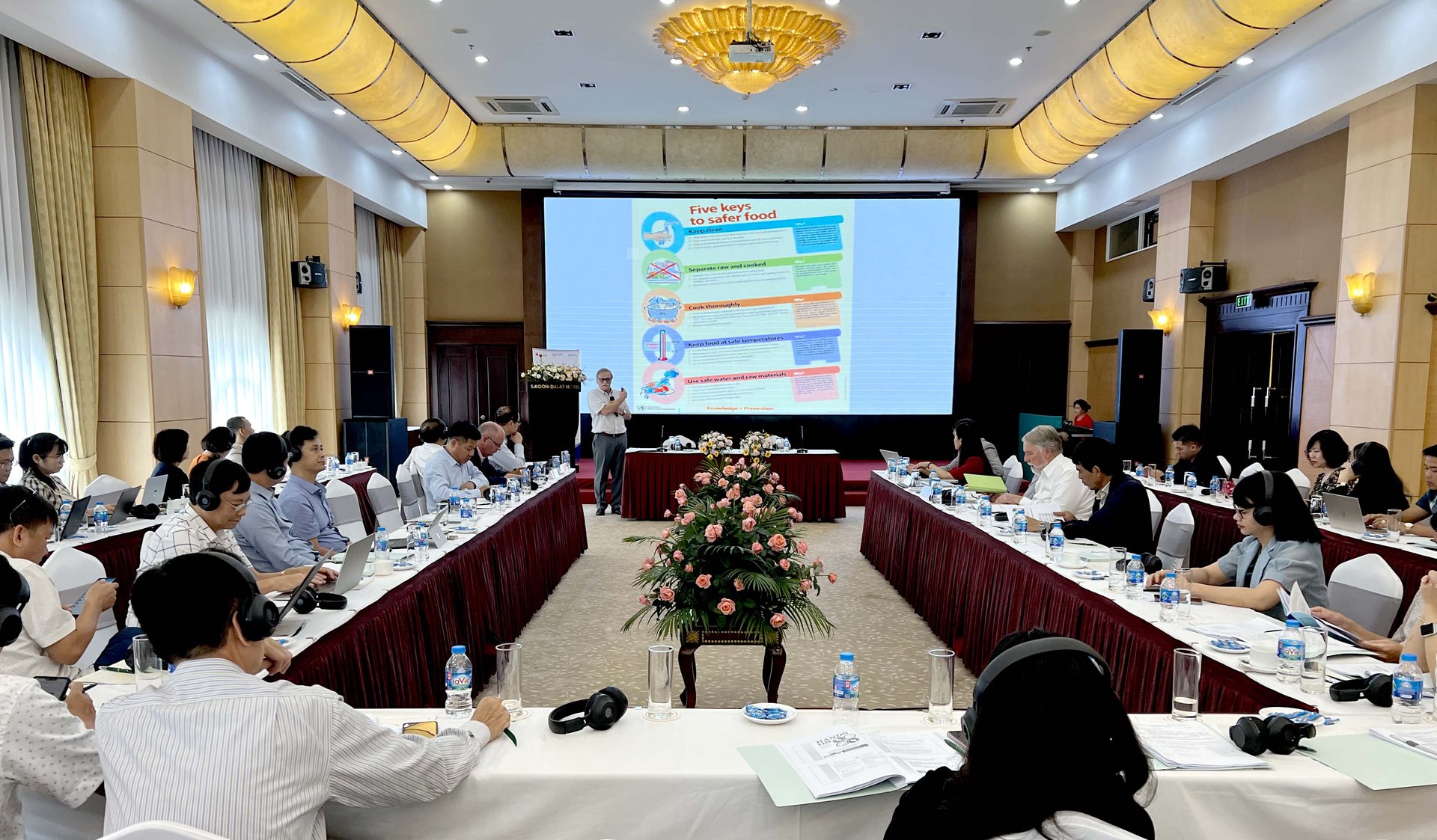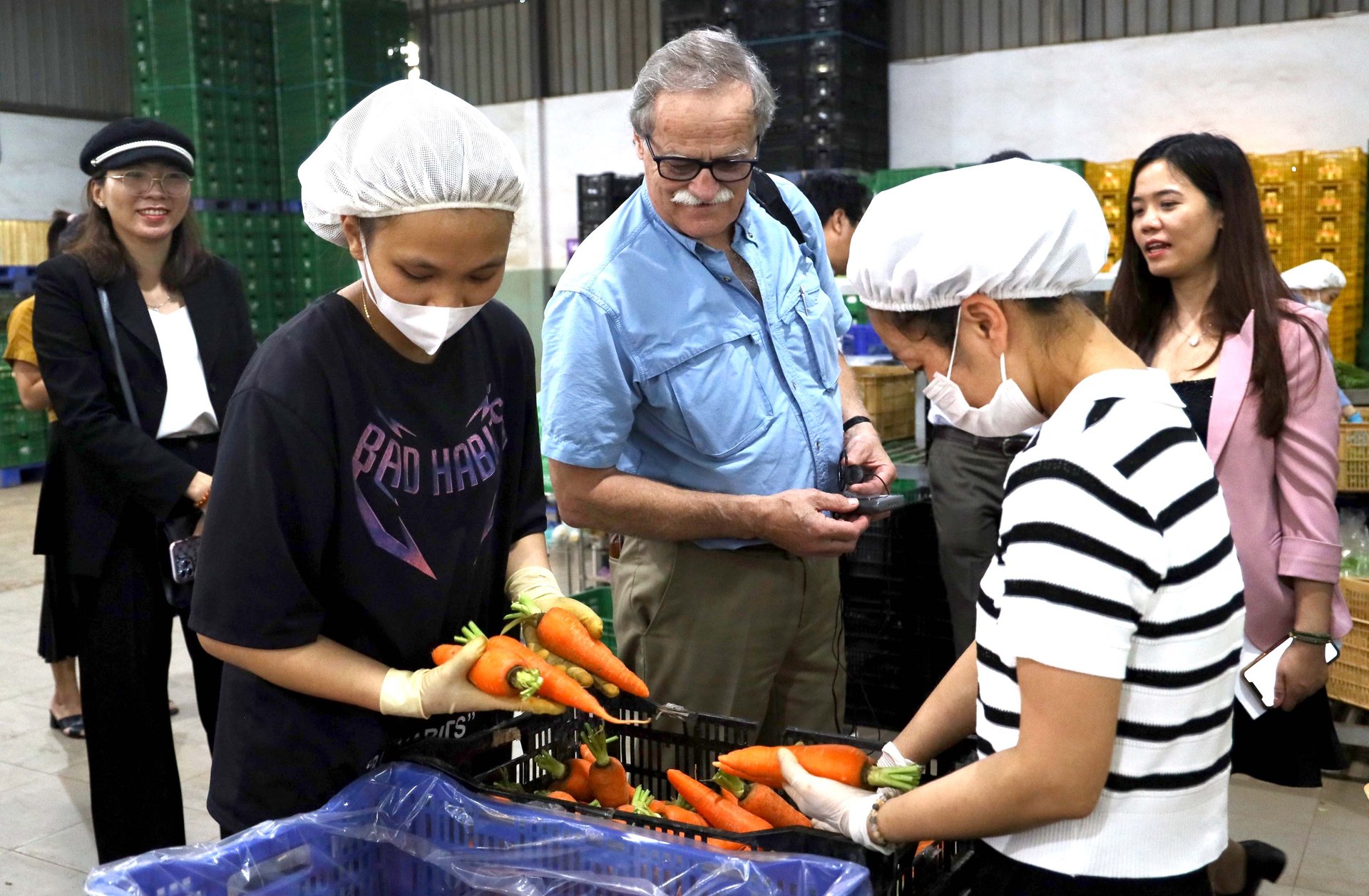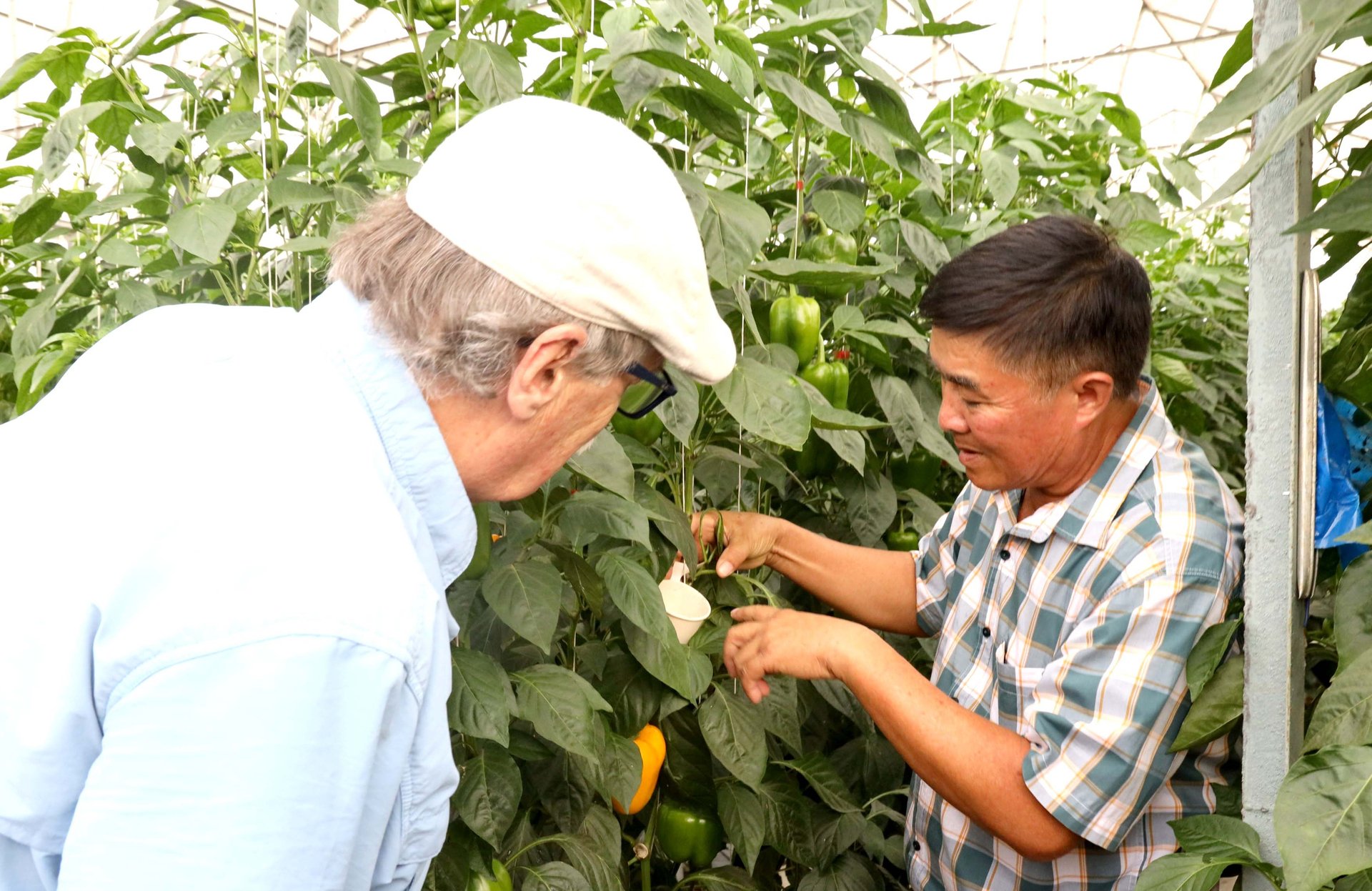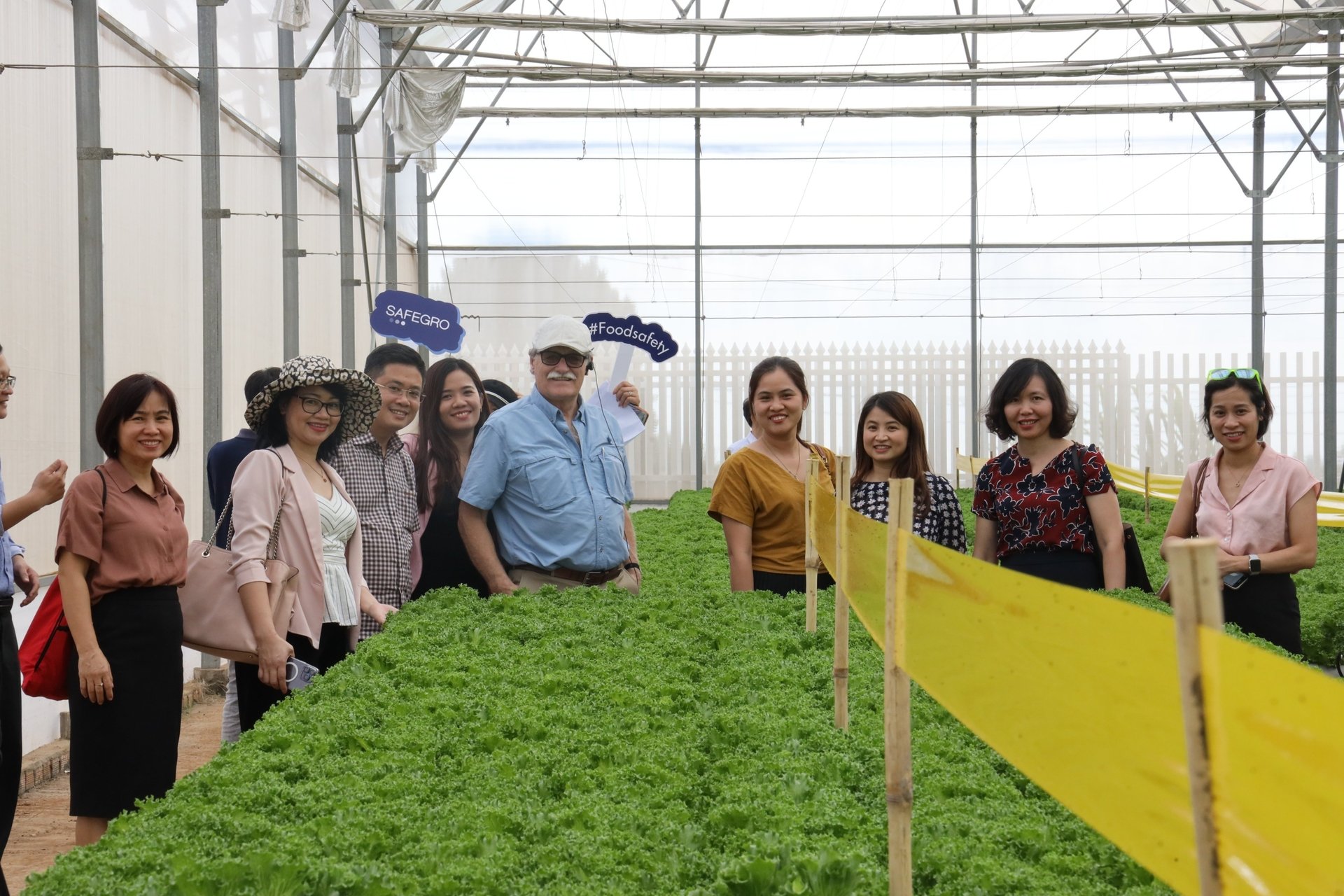November 25, 2025 | 01:14 GMT +7
November 25, 2025 | 01:14 GMT +7
Hotline: 0913.378.918
November 25, 2025 | 01:14 GMT +7
Hotline: 0913.378.918
On August 15, in Da Lat City (Lam Dong province), the Department of Quality, Processing, and Market Development (MARD) and the Safe Food for Growth project (SAFEGRO) coordinated with the Department of Social Affairs (Central Propaganda Department of the Communist Party of Vietnam) organizes a national seminar on education, communication, and culture of food safety.
Representatives of ministries, departments, branches, experts, and representatives of businesses in Lam Dong province attended the seminar.
According to the Department of Quality, Processing and Market Development, the workshop aims to raise awareness about food safety, change behaviors, customs, and practices in production, business, and outdated eating and drinking to protect human health and life. Also, it improves business ethics, the sense of responsibility of organizations and individuals producing and doing business with the health and vitality of food consumers.

The national education, communication, and food safety culture conference was held in Da Lat City, Lam Dong, on August 15. Photo: Minh Hau.
At the conference, Mr. Bui Ngoc Quy, Director of the Social Affairs Department (Central Propaganda Department), shared that food security and safety is an essential and urgent and long-term issue because of its impact on food safety that directly affects people's health.
Many hot food safety and security issues have not been resolved, and the destruction of goods that do not ensure food safety still faces many difficulties. The final handling of the abuse of pesticides, veterinary drugs, chemicals, and antibiotics in agricultural and aquatic products is still slow.
Violations against food quality and safety regulations in food preservation, preliminary processing, and processing are still widespread, which has seriously affected people's health.

Representatives of agencies, units, and experts organized a visit to a vegetable and tuber production model at an enterprise in Lam Dong.
Mr. Bui Ngoc Quy said that to change the perception and behavior of producers, traders, and consumers about ensuring food security and safety, the first and most important thing is to promote propaganda, educate, raise awareness, determine responsibilities and actions of all levels of Party committees, party organizations, cadres, party members and people.
Regarding education, communication, and food safety culture in food production and business, Mr. Nguyen Nhu Tiep, Director of the Department of Quality, Processing, and Market Development, raised the problem and current situation. There is a lack of strategies, campaigns, and specialized programs on education and communication associated with building a food safety culture. The issue of food safety education is currently not taken seriously, and policy communication on food safety is still weak.

Canadian experts visit a model of applying natural enemies in bell pepper production in Lam Dong.
Mr. Nguyen Nhu Tiep also pointed out that the current regulations and guidelines for building food safety culture at all levels are still lacking. This includes management agencies, production households, cooperatives, and enterprises, especially small, micro, and medium enterprises. Along with that is the lack of human resources with special knowledge and skills in education and communication associated with food safety at management agencies, socio-political organizations, production, and business sectors.
To solve the above problems, Mr. Nguyen Nhu Tiep said it is necessary to improve the legal policy. In which, priority is given to developing a code of conduct and practice guidelines for building a food safety culture at all levels. In addition, it is necessary to develop and implement a strategy for education, communication, and creating a food safety culture by 2030 and immediately deploy an annual specialized campaign and program on education and communication associated with food safety culture.

The Department of Quality, Processing, and Market Development representative said it is necessary to develop soon and implement a strategy for education, communication, and building a food safety culture.
At the conference, representatives of agencies, departments, and businesses also presented reports and discussions on education, communication, and food safety culture in agro-forestry-fishery production and business in Vietnam. The Canadian expert also shared international experiences in food safety education, communication, and culture to improve the quality of education and the effectiveness of food safety education and communication in Vietnam.
The Government of Canada funds the Safe Food for Growth project (SAFEGRO) with 15 million Canadian dollars. The Ministry of Agriculture and Rural Development is the implementing agency in cooperation with the Ministry of Health, the Ministry of Industry and Trade, and relevant agencies on Vietnam's food safety in 2021 - 2025.
SAFEGRO aims to improve Vietnamese people's access to safe, affordable, and competitive agricultural products, thereby helping to improve the well-being of Vietnamese consumers. SAFEGRO also supports the development and enforcement of food safety regulations based on science and a risk-based approach and works towards raising food safety awareness among the consumer public and promoting behavioral change leading to increased demand and consumption of safe, affordable agricultural products in Vietnam.
Translated by Ha Phuc

(VAN) Viet Nam is entering the pivotal period of 2025-2030, moving toward the formulation of the Remote Sensing Law, which will establish a legal foundation for the development of national digital data.

(VAN) The agricultural sector is finalizing the strategic framework for emission reduction, setting the goal of sharply cutting methane and 403.7 million tons of CO2 equivalent and moving toward Net Zero by 2050.
/2025/11/22/2236-1-153832_483.jpg)
(VAN) The National Marine Spatial Planning is opening up opportunities for sustainable blue sea development across 21 coastal localities.

(VAN) Viet Nam’s forestry sector is undergoing a comprehensive transformation, strengthening management, protection, and development efforts to maintain ecological security and drive green, sustainable growth.

(VAN) Viet Nam is accelerating efforts to digitize reservoir operations, from real-time data to hydraulic modelling.
/2025/11/21/3348-2-102623_454.jpg)
(VAN) National Assembly delegate Nguyen Thi Lan has proposed adding special mechanisms to attract human resources to the agricultural, forestry, and fishery sectors, addressing the shortage of high-quality personnel.

(VAN) Over the past two decades, the unified legal framework for water resource management has been perfected, becoming a crucial foundation for ensuring national water security.